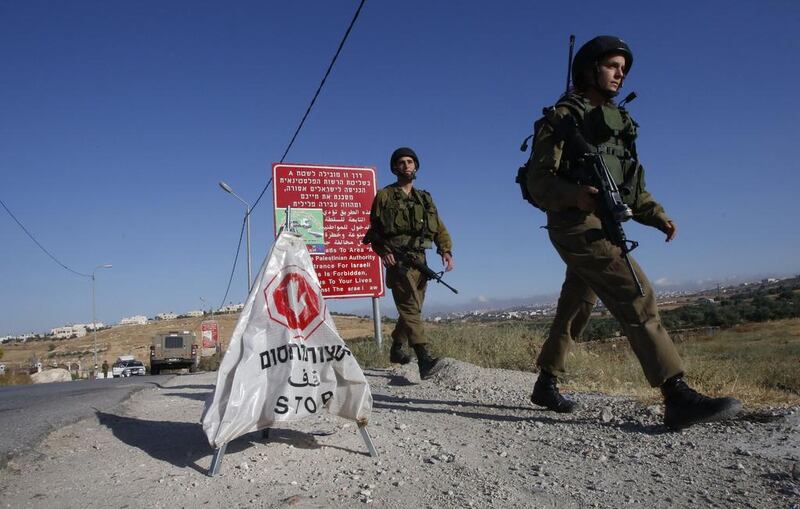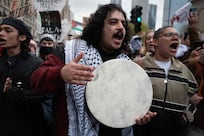From its beginning, Israel’s settlement project was shrouded in secrecy. Newly uncovered documents from 1969, two years after Israel’s takeover of the West Bank and Gaza, revealed that the military censor was used to keep documents hidden that proved the establishment of illegal settlements.
After 50 years of occupation, Israel is a radically different country than in the late 1960s. Zionism, with a messianic and nationalist fervour, is in the ascendancy while liberal and more tolerant humanism is dying. Although Israel was celebrated by the global left as a socialist paradise, conveniently ignoring the roughly 750,000 Palestinians ethnically cleansed during its founding in 1948, today’s Israel is entrenched in the belief that Israeli control of Palestinian land and resources is essential for its survival. Palestinians are barely heard in the Israeli media, their voices and views largely invisible. Many in the Israeli left are leaving, disillusioned with their country and its move towards an ethnocracy.
Supporters of the two-state solution are fearful that the occupation is now permanent. Next year is the 50th anniversary of Israel’s occupation and yet liberal Zionists are desperate to maintain Jewish privilege. The “Decision at 50” movement is pushing for a referendum – for Israeli citizens only – on the fate of the West Bank. Its website calls on Israeli prime minister Benjamin Netanyahu to ask Israelis “whether Israel’s vision includes one state between the river and the sea or a two state solution”.
In theory, this sounds like a sensible idea but it’s a deeply flawed proposal. Palestinians in the West Bank and Gaza are given no voice on their own future. After all, they bear the brunt of Israel’s military occupation. Secondly, Israelis have made it abundantly clear, over countless elections, that ever-expanding colonies in the West Bank and regular bombardments of the Gaza Strip are both necessary and morally defensible. World powers, despite occasional complaints, have done nothing to change this view including buying the latest Israeli weapons and technology battle-tested on Palestinians.
Living and travelling around Israel and Palestine, I regularly hear disparaging comments about Arabs by Israeli Jews, unwilling or incapable of imagining them as anything other than a threat to be neutralised and placed behind walls and fences. Palestinians and Israelis have barely any physical contact these days and the majority of Palestinians view Israeli Jews as brutish occupiers who steal their livelihood. They only see them as rampaging settlers or uniformed soldiers.
A recent article in Israel’s most popular newspaper, Israel Hayom, revealed the mainstream Israeli mindset. Written by a former settler spokeswoman, Emily Amrousi, she longed for “the day we decided to win”.
“We made the decision to destroy terrorists’ homes with no advance warning”, she wrote. “We deported the families of terrorists. We wrapped the bodies of terrorists in pig skin. ‘They’ve gone crazy,’ everyone said. Yes, we had already gone crazy, when they murdered a young girl in her bed.”
After five decades of occupation, with no end in sight, no interest in establishing a Palestinian state or giving full rights to all Arabs, the international community has a decision to make. It can continue to indulge Israeli policies or take concrete action to change them through severing military or diplomatic connections.
Two-state backers are often called the “peace process industry” because they’ve been making money for decades writing opinion pieces and being hired by politicians to convince sceptics that peace is just around the corner if Palestinians capitulate and Israel removes a few settlements.
There are more than 500,000 settlers living illegally on Palestinian land. Moving them all is an impossibility. Besides, Israel feels no real pressure to do so.
Hillary Clinton and Donald Trump sell themselves as Israel’s best friends but in fact they’re its worst enemies, funding its insatiable appetite for never-ending expansion. With many Middle East states consumed by civil war, freedom for Palestinians is now a fifth tier issue in the diplomatic community.
Could the occupation last another 50 years?
Quite possibly, if Israeli hardliners annex vast swaths of the West Bank, kick out Palestinians by stealth and continue selling to the world the methods, technology and ideology that celebrate the control of a people led by corrupt leaders.
Next year’s occupation anniversary will be marked with global protests, loud voices of opposition and harsh denunciations of Israel. But the occupation is permanent and sustainable unless Israeli Jews are made to pay an economic price for it. Daily life for Palestinians under Israeli occupation is barely discussed in the Israeli media. Colonisation is seen to be almost cost-free. A healthy society would never tolerate millions of people living under military rule.
Antony Loewenstein is an independent journalist in Jerusalem





